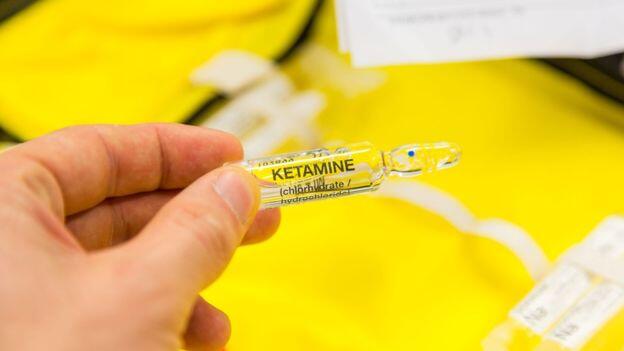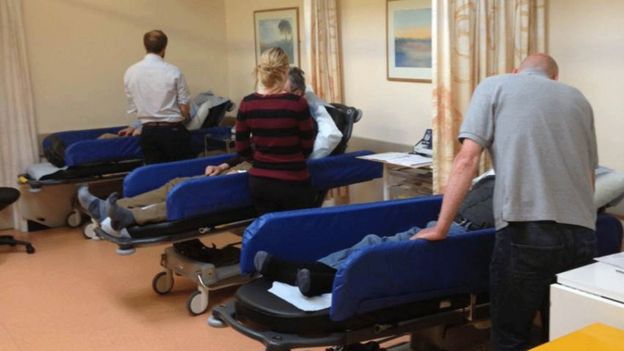Doctors trialling the use of ketamine to treat depression are calling for the treatment to be rolled out.
Ketamine is licensed to be used as an anaesthetic but has a reputation as an illegal party drug.
Writing in The Lancet Psychiatry, Dr Rupert McShane, who has led a trial in Oxford, since 2011 says ketamine can work on patients with depression “where nothing has helped before”.
However, he is calling for a national registry to monitor its use.
Dr McShane says tens of thousands of people who have not responded to other treatment could be helped by the drug.
But he adds there should be a national registry for those who prescribe the treatment to monitor the results and avoid misuse of the Class B substance.
Of the 101 people taking part who had failed to find a successful depression treatment, 42 of them responded to the ketamine.
“The first ketamine infusion literally saved my life,” says one patient.
“I had felt so desperate I was going to end it all.
“Subsequent ketamine treatment has enabled me to return to my job full-time. I still struggle at times but being able to work again has given me such a boost.”
Dr McShane hopes more doctors will use it to treat depression but fears that the UK could follow the US where there are private ketamine clinics that vary in their clinical checks.
“We think that patients’ treatment should be in specialist centres and formally tracked in national or international registries. This will help us to pick up any safety or abuse problems with longer term use and narrow down what dose, frequency, route and durations of treatment works best.”
‘Not a miracle’
The dosage of ketamine used in his trial is much less than the amount used by people who take it as an illegal party drug – and he warns against any kind of self-medication.
Dr McShane also warns it is “not a miracle” drug for depression and “maintaining the benefit is a challenge”, which has so far only been achieved by repeated dosing.
But participant Louise, a 36-year-old former nurse, said she did not feel that she was becoming dependent on the drug.
“I definitely do not feel at all, in any way ‘hooked on’ or addicted to the ketamine. I have more trouble with withdrawal and side-effects if I miss a couple of doses of my (standard) antidepressant than I do with the ketamine.”
‘Exciting discovery’
Commenting on the paper, Prof Allan Young, from the The Royal College of Psychiatrists, said there were still “significant gaps” in knowledge about ketamine’s use.
“Before ketamine can be recommended for use in clinical practice, extensive research is required to understand how to optimally use ketamine for treating depression,” he said.
“The Royal College of Psychiatrists has concerns for patient safety and hence recommends mental health practitioners to proceed with caution when treating patients with ketamine.”
Cardiff University psychiatrist Dr Paul Keedwell said: “Ketamine in the treatment of depression is one of the most exciting discoveries in psychiatry for years.
“However, more research is needed and having a registry allows researchers to share new findings, positive or negative.”
Source: http://bbc.in/2nHkQUQ












